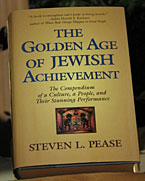Excerpt:
Julius Rosenwald©
"Shall we devote the few precious days of our existence to buying and selling. . . . My Friends, it is the unselfish effort, helpfulness to others that ennobles life, not because of what it does for others, but more what it does for ourselves."
Julius Rosenwald
 Julius Rosenwald may qualify as the original "compassionate conservative." A successful Republican, Rosenwald opposed FDR's new deal politics and his approach to welfare. Nonetheless, Rosenwald alone was responsible for the construction of more than 5,000 black schools built throughout the South between 1916 and 1932. Although as a Jew, he could not serve on any local or the national YMCA Board of Directors, he was the driving force behind the building of 25 YMCAs. Rosenwald was born August 12, 1862 at the family home, about a block from Abraham Lincoln's Springfield, Illinois residence. His father Samuel had emigrated from Germany, beginning as a door-to-door peddler and working his way up to a horse drawn cart before he married Augusta Hammerslough in 1857. Augusta's brothers were very successful retailers and they put Samuel in charge of several of their stores.
Julius Rosenwald may qualify as the original "compassionate conservative." A successful Republican, Rosenwald opposed FDR's new deal politics and his approach to welfare. Nonetheless, Rosenwald alone was responsible for the construction of more than 5,000 black schools built throughout the South between 1916 and 1932. Although as a Jew, he could not serve on any local or the national YMCA Board of Directors, he was the driving force behind the building of 25 YMCAs. Rosenwald was born August 12, 1862 at the family home, about a block from Abraham Lincoln's Springfield, Illinois residence. His father Samuel had emigrated from Germany, beginning as a door-to-door peddler and working his way up to a horse drawn cart before he married Augusta Hammerslough in 1857. Augusta's brothers were very successful retailers and they put Samuel in charge of several of their stores.
Julius was an outgoing, affable young man who left high school after his sophomore year to work for his uncles in their New York store. There, he became boyhood friends with Henry Goldman, Goldman Sach's founder, and Henry Morgenthau, father of FDR's Treasury Secretary. At 23, after five years with his uncles and with their support, Julius started his own clothing store.
He soon realized there was an even bigger opportunity in manufacturing men's summer clothing and once more, with support from his uncles and his father, he started the new business in Chicago. It was a hit from the start. Five years later, in 1890, he married Augusta Nusbaum, and by 1895, he had sold the business to invest in and operate Sears & Roebuck.
Richard Warren Sears, a gifted promoter had started Sears & Roebuck in 1887. He recruited self-taught watchmaker Alvah Curtis Roebuck (also not Jewish) as a partner after Sears had proved he could sell watches by mail.
In 1895, to finance expansion, and to raise funds to buy out a by then disgruntled Roebuck, Sears agreed, to sell half the business for $75,000 to Aaron Nusbaum. Nusbaum approached his brother-in-law, Rosenwald, with the idea of taking half his position -- a 25 percent ownership position in Sears & Roebuck -- and serve as co-head of operations. Sears was a superb copy writer and promoter, but a poor businessman with little operational ability. Rosenwald's management skills were critical and the partnership was an immense success....
